By Tanaka Urayai
St Peters Claver Catholic Church in Mbare along Rakajani Street can easily be mistaken for a commercial organization as each morning over fifty men and women in branded work-suits assemble religiously to receive their orders before being carried off by 15 branded trucks. At the same site, forty young people in branded t-shirts armed with clip-boards, questionnaires and pens are also released into the Mbare community giving any stranger sufficient curiosity to want to know more about the ‘business’ of the ‘religious’ looking organization.
It all started in 2015 with thirty youths from two different organizations who came together at the World Environment Day and asked themselves what good they could do for their community.
After being challenged by their respective spiritual mentors Fr Isaac Fernandes SJ and Fr Brian MacGarry SJ, the St. Peter’s catholic youths and the youths from ‘I Am Mbare’, a local youth empowerment centre agreed to team-up and tackle the most undesirable endeavor of all. The youths resolved that their environmental project would be to clean up Mbare and rid it of its numerous dump-sites infested with all manner of wet, dry, living and dead waste that the rest of the community wanted nothing to do with despite generating and dumping this ‘garbage’ themselves.
Realizing that this endeavor had to be more than the usual once-in-a-blue-moon clean-up campaign, the youths commited to congregating every six weeks to clean their community, one rubbish dump at a time. The youths settled for the name ‘Team Up 2 Clean Up Mbare’, by which name they are now affectionately known.
As the movement grew from just thirty to over one hundred and fifty youths, comprising both local Mbare youths as well as those from other suburbs, the team decided to embark on complementary projects that would sustain their waste management efforts. In 2017 they decided to build a bin-shed to house skip bins and contain the overflowing waste; and also repurpose the largest dumpsite at Matererini into a children’s play centre as many small children would be seen playing at this site in the typhoid afflicted community.
Inspired by this vision, a group of young professionals coalesced around this movement to form a trust for the purposes of doing the necessary fundraising to see this venture through. With the assistance from Jesuits who work in Mbare and many like-minded non-governmental entities which include but not limited to Justice for Children Trust, Plan International, The President’s Fund, and Battle of the Chefs, the youths together with the older community managed to construct the bin-shed and the Matapi-Matererini children’s play centre in 2017.
After numerous presentations of their concept-note to humanitarian and private sector organizations, the trust received formal partnership commitment from RioZim Foundation at the end of 2018. The foundation which committed to partnering for sustainable waste management and other community support activities kicked off the venture by sponsoring a Mbare census and also a mini waste management baseline survey. The aim of the exercise is to have an insight into the socio-economic situation to understand the community’s attitudes and perceived role in waste management.
In 2019 the trust also received a waste collection and recycling franchise offer from ‘Clean City’, Econet’s waste management subsidiary whose main role has been to provide waste collection infrastructure and the technology to run a commercial domestic refuse collection venture, while ‘Team Up 2 Clean Up Mbare’, as one out of several franchisees manages the process, a project that is still in its inception phase.
What started out as a youth voluntary association has gradually evolved into a start-up business, thanks to the Clean City Franchise that employs over 50 locals. This is just the commercial benefit. As for the RioZim supported ‘waste separation at source’ community project, residual waste is reduced at household level and this will have a positive impact on the overwhelming rubbish dumps, not to mention the residual income that will be generated from the recyclables.
Opportunity always comes dressed in overalls looking like work.



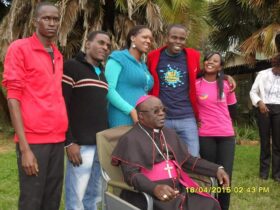
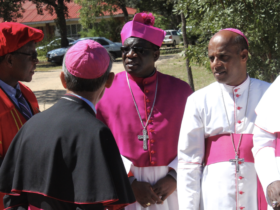
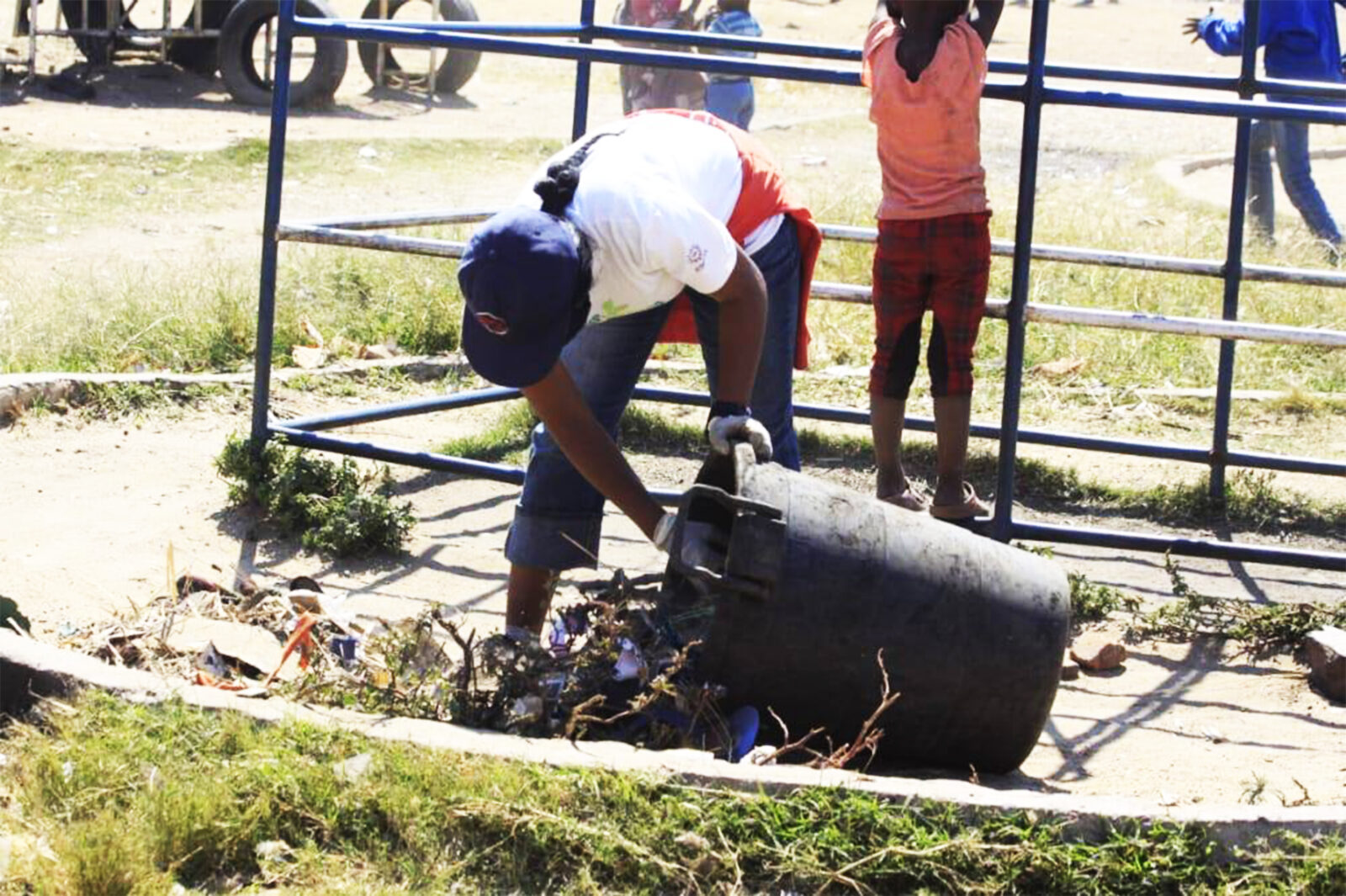

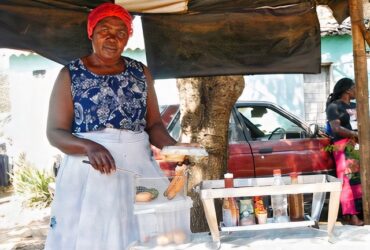
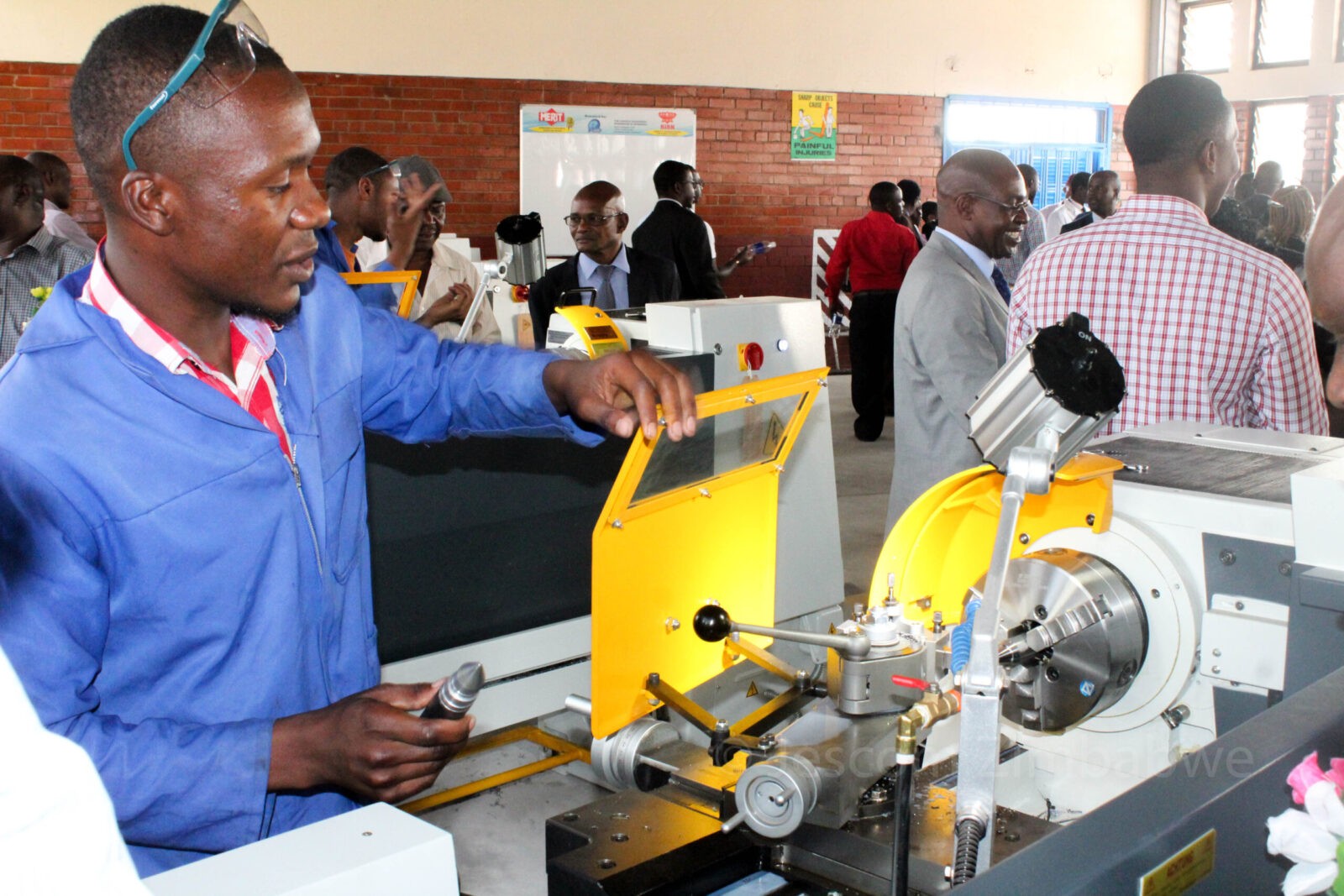
Leave a Reply